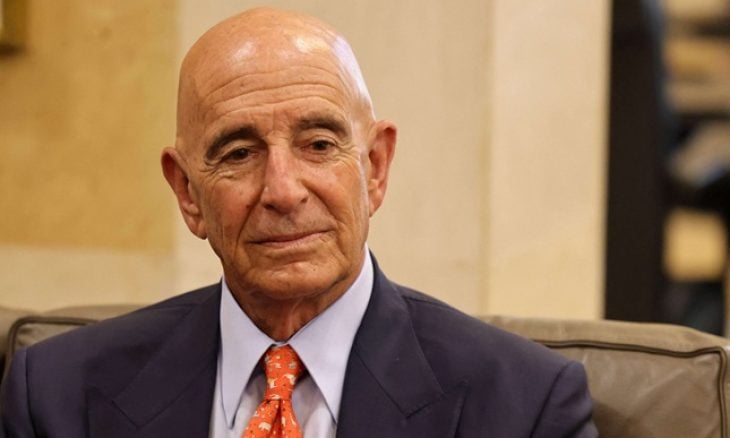US Envoy Tom Barrack Discusses Ceasefire Crisis in Lebanon and Emphasizes: Solution Lies in the Hands of the Lebanese Government

US Special Envoy to Syria and Lebanon, Tom Barrack, arrived in the Lebanese capital Beirut today, Monday, July 21, where he held a series of meetings with Lebanese officials, most notably with President Michel Aoun at Baabda Palace, in the presence of US Ambassador Lisa Johnson.
In a press conference following the meeting, Barrack affirmed that Washington is working on "addressing the reasons for the failure of the ceasefire agreement between Lebanon and Israel," noting that "Lebanon is part of regional stability." He added: "We are trying to help the Lebanese in bringing peace, but the solution lies in the hands of the Lebanese government."
Responding to journalists' questions, Barrack denied any current US intention to impose sanctions on Lebanon, also pointing out that Washington "cannot force Israel to do anything at the moment." He reiterated his country's position on classifying Hezbollah as a "terrorist organization," saying: "Washington considers Hezbollah a terrorist organization and will not engage with it."
For its part, the Lebanese Presidency stated in a statement on the "X" platform that the meeting addressed Barrack's reception of Beirut's official response to the US proposal regarding disarming Hezbollah and the withdrawal of the Israeli army from southern Lebanon.
The agenda of the US envoy includes meetings with Prime Minister Najib Mikati, Progressive Socialist Party leader Walid Jumblatt, as well as Lebanese Army Commander Joseph Aoun. It is also expected that he will meet with a number of MPs, ministers, the Maronite Patriarch, and some religious and political figures during an additional two days he will spend in Beirut.
In a related context, Hezbollah Secretary-General, Naim Qassem, anticipated Barrack's visit with statements confirming that the party will not obstruct any agreement, but will negotiate "in its own way" to obtain US guarantees that compel Israel to fulfill its commitments.
"Al-Sharq Al-Awsat" reported from informed sources that Qassem's insistence on the initial agreement and his refusal to enter into new negotiations stem from his need for assurances to justify before his popular base any step related to the party's future and its weapons, amidst ongoing regional and internal transformations.